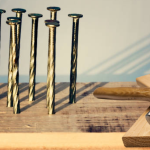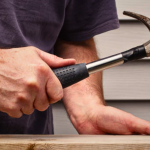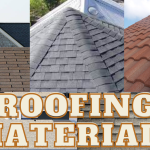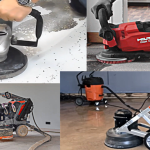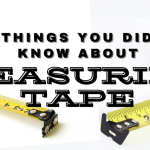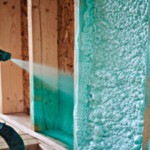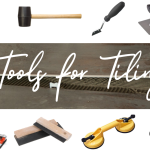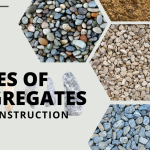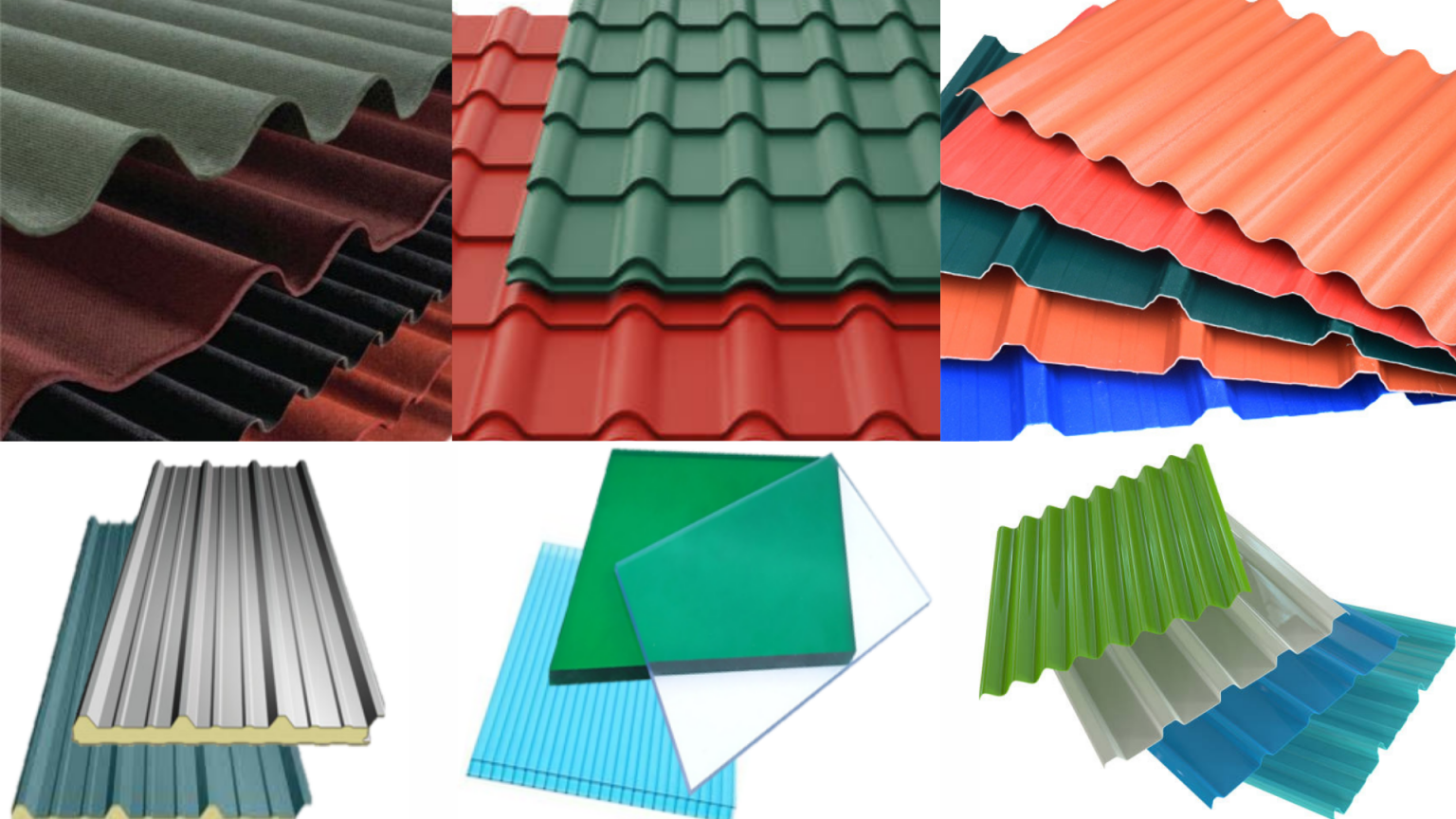
Roofing sheets are made from a variety of materials, each with their own set of qualities and uses on different sorts of roofs. Choosing the appropriate roof sheet will help your roof last longer and be more durable. Different varieties of roof sheets have their own set of advantages and disadvantages. Each type caters to a particular set of requirements.
The components that make up your roof are only as strong as the materials that make up your roof. The amount of protection provided by your roof is ultimately determined by the clever combination of numerous materials that work together to provide the best results. Roofing sheets are essential for safeguarding your roof from severe weather, whether it’s for your garage, shed, or another structure completely.
They provide a physical barrier, protecting the underlying components from severe winds, heavy downpours, snowfall, and hail. Due to technological improvements, these sheets also have an amazing range of features and functions, as well as being accessible in a variety of sizes. You only know which roofing sheet is ideal for the structure you’re working on. Roofing sheets come in a variety of shapes, sizes, and compositions, each with their own set of benefits and purposes.
ALSO READ: ROOFING MATERIALS
DIFFERENT TYPES OF ROOFING SHEETS
The following is a list of popular roof sheet types used in buildings.
- Aluminum sheet
- Asbestos Cement Sheet
- Bitumen Sheet
- Color Coated Sheet
- Corrugated Sheet
- Fiber Reinforced Plastic Sheet
- Galvanized Iron Sheet
- Galvanized Steel Sheet
- Plastic Sheet
- Polycarbonate Sheet
- Polyester Painted Sheet
- PUF Sheet
- Polyvinyl Chloride Sheet
- Unplasticized Polyvinyl Chloride Sheet
Aluminum sheet
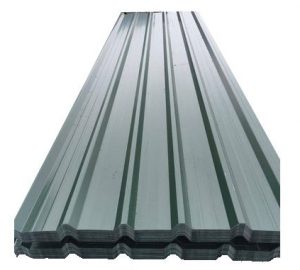
Aluminum roof sheets are simple to install and maintain, and their anti-corrosive features provide a long lifespan. They also have a lustrous glossy finish.
Aluminum roof sheets have the greatest strength and longevity of any roofing material.
Asbestos Cement Sheet
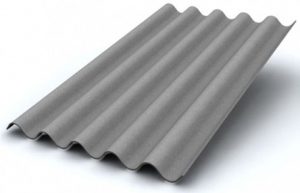
Asbestos fiber is used as a reinforcing material with cement throughout this type of roof construction method.
An asbestos fiber provides rigidity and stiffness to the roof sheet body, allowing it to keep its size and shape without breakage.
Bitumen Sheet
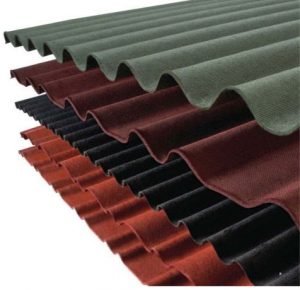
Bitumen roofing sheets are employed in a variety of climates, including hot and cold temperate areas.
The main disadvantage is that it absorbs heat from direct sunlight rather than heats the home.
Color Coated Sheet
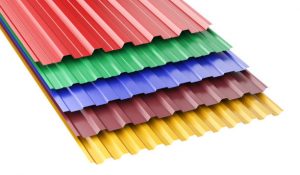
Roof sheet steel and other alloy sheets are coated with a mixture of 55% aluminum, 43% zinc, and 1.5 percent silicon, and are paired with high–quality colors that meet specific specifications for this type of roof sheet steel and other alloy.
This is also available in a single color coated and a multicolor coated version with a variety of color options. This color coating gives it a lovely appearance while also adding the benefit of being non-corrosive.
Corrugated Sheet
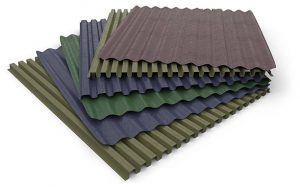
Corrugated roofing sheets have repetitive folds on their surface and are commonly used in agricultural structures. They provide years of dependable usefulness and increased strength due to their distinctive design. They are stronger than previously because of their corrugated design with ridges and grooves.
Fiber reinforced Plastic Sheet
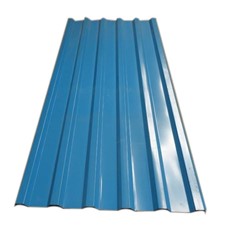
Fiber-reinforced plastic, or FRP sheet for roofing, is a composite material consisting of fiber and thermosetting resins.
Fiber is used as a reinforcing material to keep the molded shape and improve structural stiffness.
These roofing sheets are available in corrugated and flat shapes, as well as a variety of styles and colors.
This is also an anti-corrosive sheet that can be quickly fixed and has a low maintenance cost.
Galvanized Iron Sheet
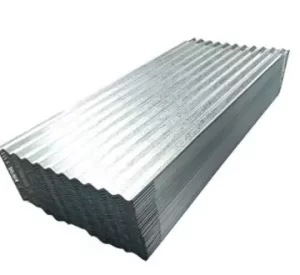
Galvanized iron sheets come in a variety of gauge thicknesses and sizes. Electro galvanizing and hot-dip galvanizing were employed to treat the surface of GI sheets.
For anti-corrosive treatment, this type of GI sheet is employed with zinc with an aluminum coating or zinc coating.
Galvanized Steel Sheet
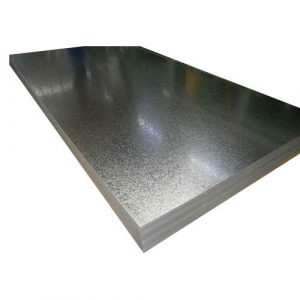
Galvanized steel is standard steel that has been zinc-coated to make it corrosion resistant. Standard steel is formed of iron, which rusts when exposed to moisture, whether from rain or humidity in the air. Rust will erode a steel part to the point of failure over time.
Plastic Sheet
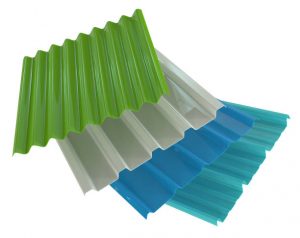
This roofing sheet is made of polyethylene, PET, polypropylene, and other plastic sheets. This sheet is lightweight, waterproof, pliable, and non-corrosive.
However, the primary disadvantage of these roof sheet types is that they have a shorter lifespan than aluminum roofing sheets.
Polycarbonate Sheet
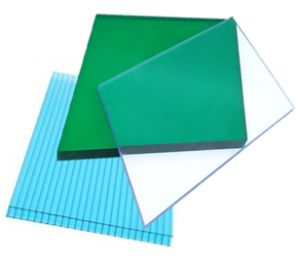
Polycarbonate is a thermoplastic polymer whose chemical structure includes a carbonate group. Polycarbonate roof sheets are also lightweight and transparent.
Because of its transparency, this roof sheet may be used in areas that require a lot of light, such as greenhouses, warehouses, carports, and patios.
The most significant disadvantage is its expensive cost, which limits its application.
Polyester Painted Sheet
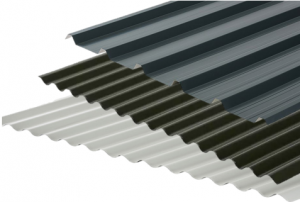
This kind of roofing sheet is most typically utilized for agricultural construction because of its medium-to-long lifetime. It is a less expensive choice, but it must be maintained every five to ten years. Installation and maintenance are critical because it is prone to scratches.
PUF Sheet
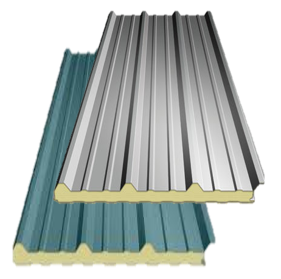
Polyurethane foam sheet (PUF) is a kind of polyurethane foam sheet. Polyurethane foam sheets are layered between two identical material sheets in this form of roofing sheet.
Thermal insulation is the most common application for PUF sheets.
Polyvinyl Chloride Sheet
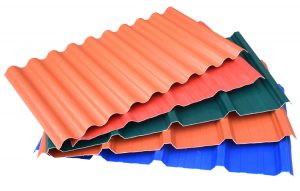
This type of roofing sheet is formed of a thermoplastic polymer that is produced by polymerizing vinyl chloride monomer.
These roofing sheets feature qualities like weather resilience, light weight, non-corrosive nature, and waterproofness, which make them more popular than other types of sheets.
Unplasticized Polyvinyl Chloride Sheet
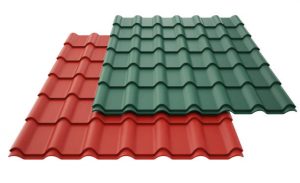
This roofing sheet is rigid and hard in nature, with no flexibility, which distinguishes it from polyvinyl carbonate roofing sheets in terms of functionality.

